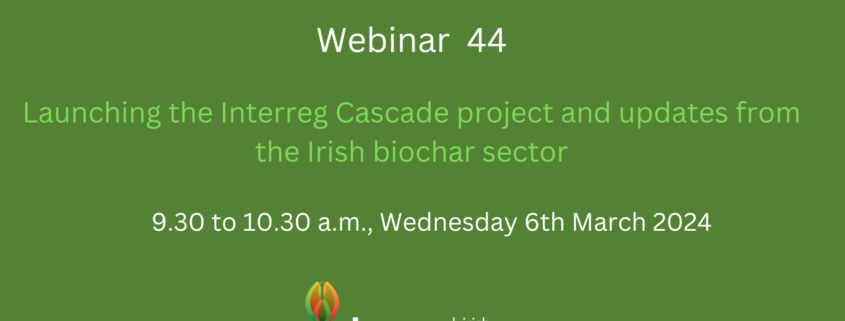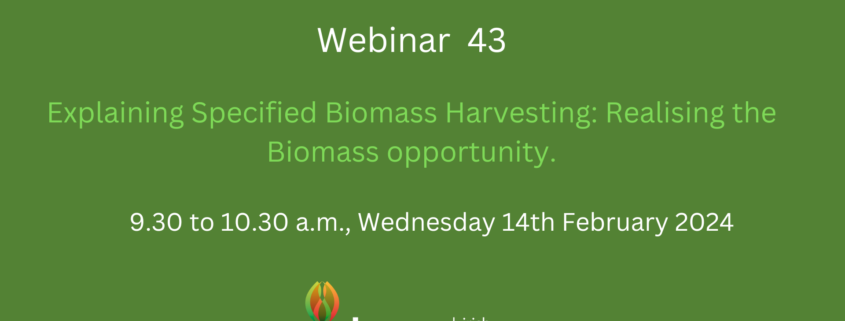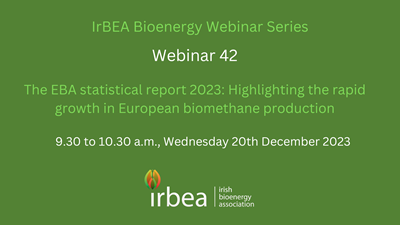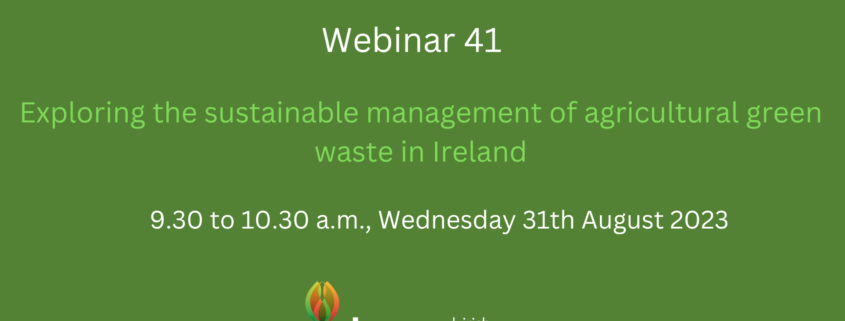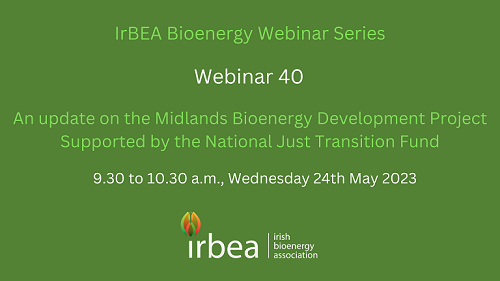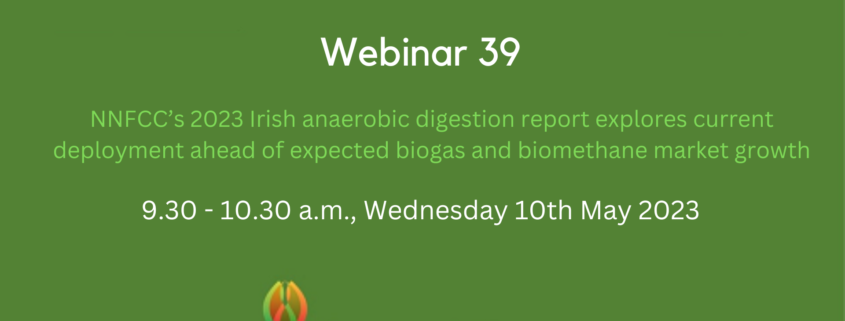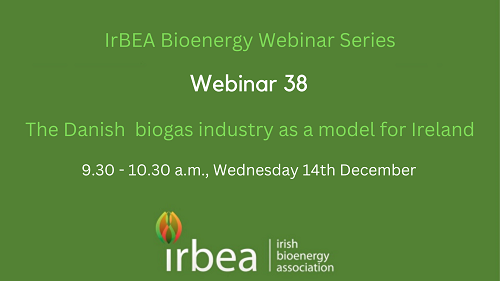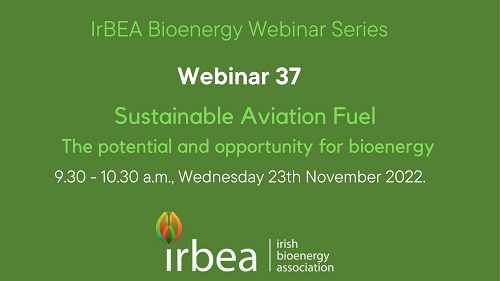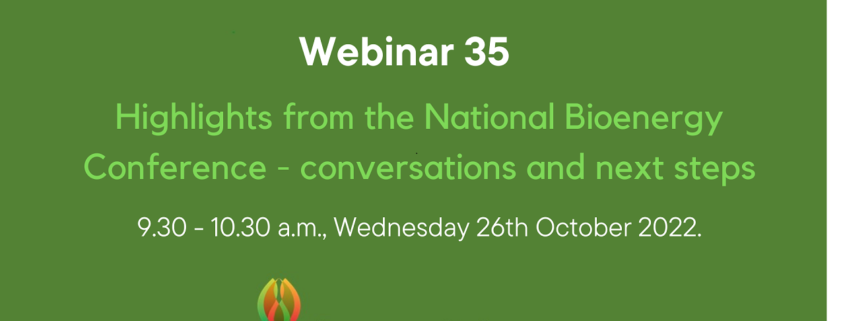Webinar 44: Launching the Interreg Cascade project and updates from the Irish biochar sector
Dear webinar participants and IrBEA members,
A live recording of webinar 44 is available here.
Topic Overview
At this webinar, IrBEA launched the Interreg Northwest Europe Cascade project and presented updates on the development of the Irish biochar sector. The CASCADE (Circular Conversion Cascades to Transform Residual Biomass to Carbon Products) project promotes the transition to a circular and resource efficient economy. Our previous projects have demonstrated the successful conversion of substantial amounts of waste biomasses into biochar. This process serves as a sustainable alternative to fossil coal and peat, resulting in the creation of CO2-negative products and value chains. Building upon these achievements, our current project aims to further expand Biomass-to-Biochar production and value chains. IrBEA will introduce, manage, and optimize these chains across seven European pilot regions, encompassing urban, rural, and peri-urban areas. Donegal has been selected as one of our pilot regions. Watch this webinar to find out more about this project and to stay updated on the latest developments in the Irish Biochar sector
Webinar MC: Seán Finan, IrBEA CEO
Presenter: Stephen McCormack, IrBEA Project Executive

